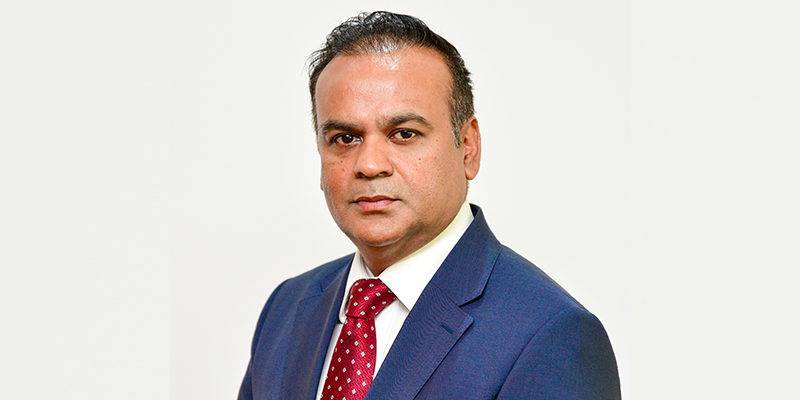
22 Apr Interview with Honorable Dhananjay Ramful, Minister of Foreign Affairs, Regional Integration & International Trade of Mauritius
With the new government in place, what are the key priorities for Mauritius’ foreign relations, particularly in strengthening diplomatic ties and advancing regional integration?
Given the current geopolitical and economic landscape, Mauritius must adopt a dynamic, innovative and proactive diplomatic strategy — our top priority. This means leveraging bilateral and multilateral partnerships while focusing on key areas like climate change, sustainable development, the ocean economy and renewable energy. Our vision is to position Mauritius as an indispensable regional hub.
We must also maximize opportunities within regional organizations such as the Indian Ocean Commission, which connects us with Madagascar, Réunion, Seychelles and other neighboring islands. Madagascar will host the Pacific Conference this year and Seychelles will hold the Council of Ministers meeting. Mauritius is also a member of the Indian Ocean Regional Association, a larger body than the Indian Ocean Commission, as well as the Southern African Development Community, the Common Market for Eastern and Southern Africa and the African Continental Free Trade Agreement. Our participation in these organizations strengthens Mauritius’ strategic role as a gateway to Africa for investors — one of the new government’s key priorities.
Which markets and partners is Mauritius prioritizing for trade expansion and what strategies are in place to enhance economic partnerships globally and within Africa?
Mauritius aims to be a gateway between Africa, Asia and Europe, capitalizing on Africa’s growing 1.7 billion consumer market just a few hours away by plane. As a stable country, both economically and politically, Mauritius offers investors access to the African Continental Free Trade Area and beyond. We have key trade agreements with the EU, India, China and the UK and are finalizing an economic partnership with the EU.
Japan provided significant support to Mauritius during COVID-19. Looking ahead, we see great potential in Japan, a leader in technology and the blue economy and are even considering opening an embassy there to strengthen ties and expand our global network.
Mauritius has participated in past Tokyo International Conference on African Development (TICAD) summits. What are your expectations and goals for TICAD 9?
I wasn’t directly involved in TICAD, but Japan’s initiative to highlight South-South and Triangular Cooperation for African-led development is commendable. TICAD is significant as it fosters public-private partnerships between African and Japanese companies. Our government is committed to a strong presence at the next summit in Yokohama this August, with the prime minister considering attending, as he has in the past.
Mauritius will be participating in Expo Osaka 2025. What are the main highlights of the country’s presence at the event and how do you envision this contributing to trade, tourism and investment promotion?
Mauritius values its strong diplomatic ties with Japan and was among the first to confirm participation in Expo Osaka (April–October). We will have a pavilion under the theme ‘Empowering Lives,’ aligning with the Expo’s vision of designing a sustainable future. This global event offers a key platform to showcase Japan’s commitment to the UN’s sustainable goals. Mauritius will also host events, including our National Day celebration on March 12.
What steps is your government taking to reinforce its role as a regional and global player, particularly in emerging sectors like fintech, renewable energy and blue economy initiatives?
As a small island nation, Mauritius relies on innovation, resilience and strategic partnerships to strengthen its regional and global role. In FinTech, we have introduced regulatory sandbox authorizations for testing new financial solutions, the Virtual Asset and Initial Token Offering Services Act to regulate virtual assets and frameworks for peer-to-peer lending and crowdfunding to expand access to capital.
We are also developing a FinTech innovation hub to support startups with resources, mentorship and funding. Additionally, Mauritius actively participates in international FinTech forums. Mauritius is actively attracting investment in solar, wind and other renewables to build a cleaner, greener future. We are strengthening our regional role by partnering with organizations like the International Renewable Energy Agency to refine our renewable energy roadmap.
In the blue economy, the ocean is central to our economy as a small island developing state. Our ‘Building Blue Resilience through Innovation’ initiative funds projects to combat pollution and environmental threats.
How did Mauritius perform in international trade last year and what is the outlook for this year?
International trade, especially in automobiles, has grown significantly. In 2024, Japan exported $225.3 million in goods to Mauritius, while our exports totaled $19.7 million, creating a large trade deficit. Japanese vehicles make up a major share of our imports.
Do you have any closing remarks?
Mauritius has a new government focused on global partnerships and expanding our network. Investors seek stability, rule of law and respect for human rights — all of which Mauritius offers. Though a small island, we serve as a gateway between Asia and Africa. With Japan emerging as a key player in Asia, we look forward to strengthening our partnership.
